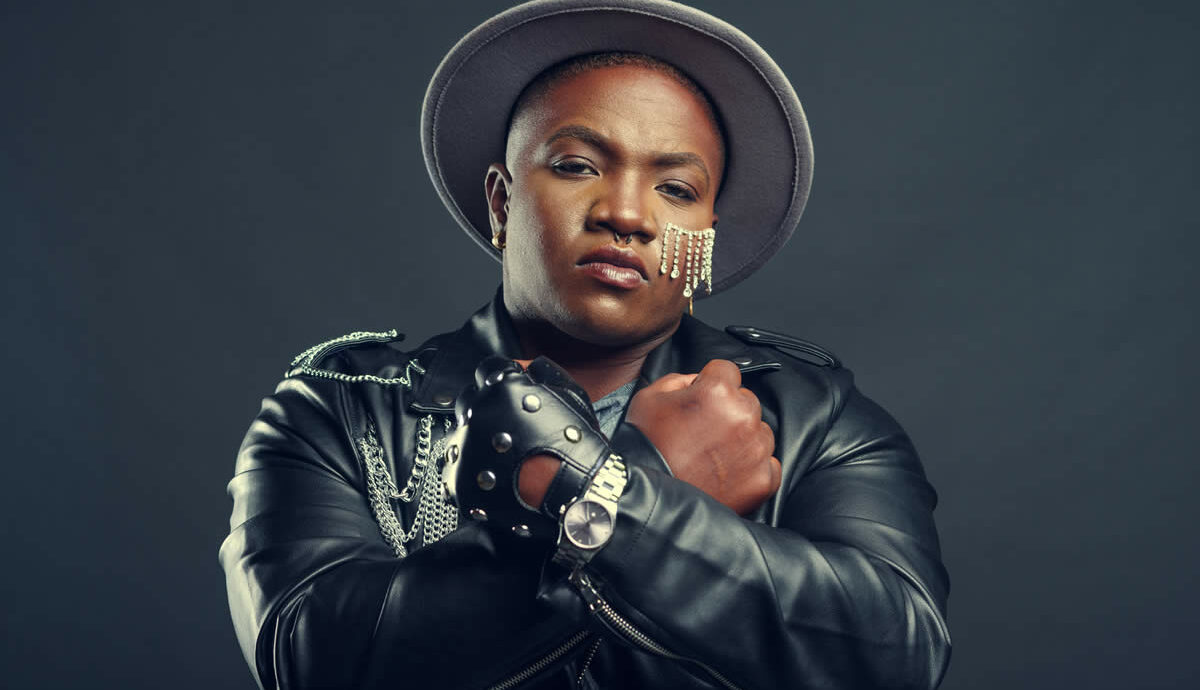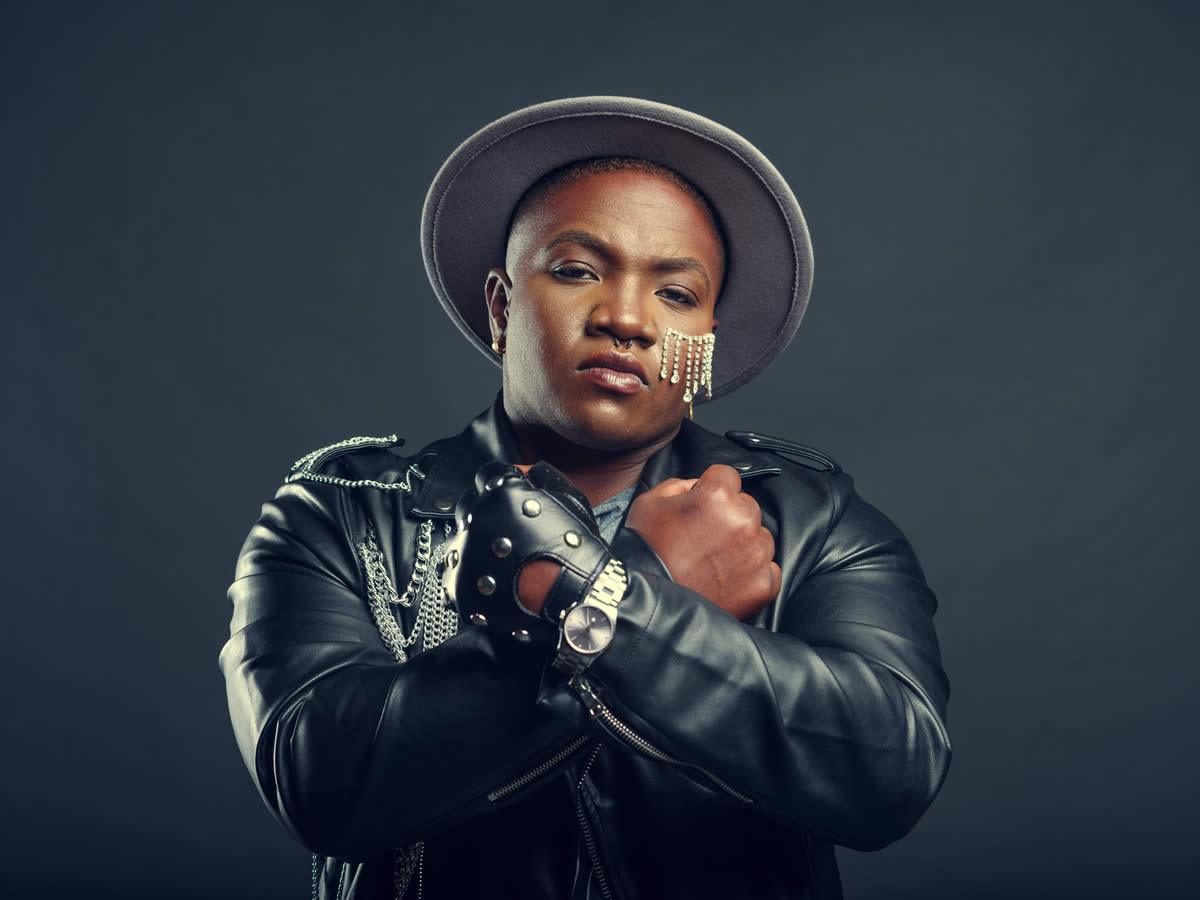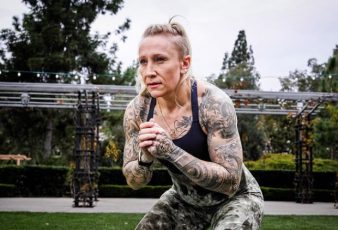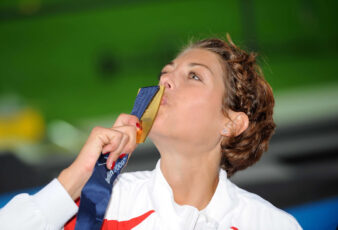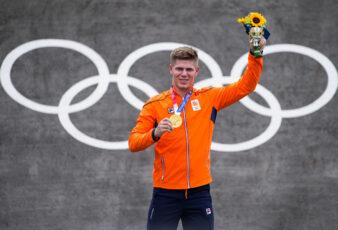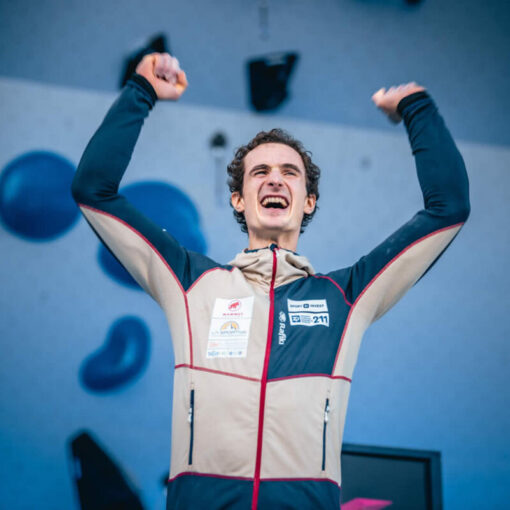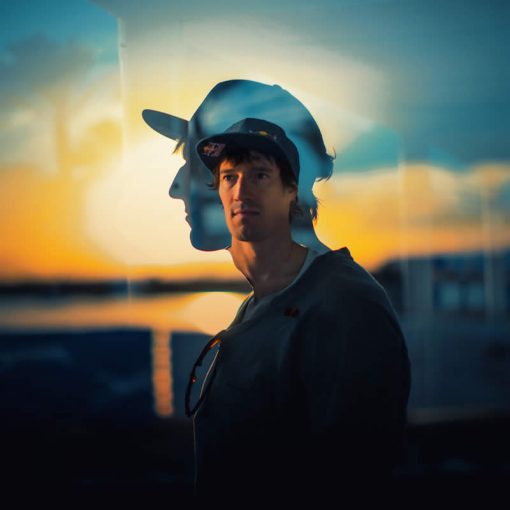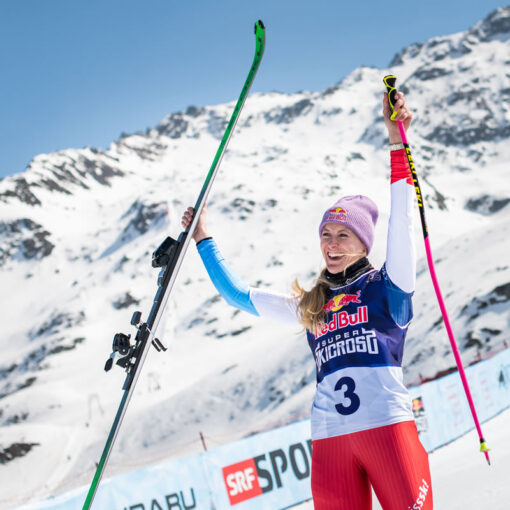How far I can throw, nobody knows.
Maybe I don't know it either, even though I've never had problems dreaming big.
Inside those 8.8 pounds there is a density of thoughts, of stories, of past impossible to measure and every time I make it fly, it feels like everything I am is compressed inside of it, and rises into the sky, thanks to the force of my muscles, and of my work.
Go.
Go as far as you can.
The shot put hides something brutal, and ancestral.
It’s one of the simplest forms of competition.
Picking up a stone from the ground and playing who makes it flythe furthest.
Who’s the strongest? It’s an timeless gesture, a challenge to the past.
It's a challenge to the child who lives inside you: let's see who does better.
Let's see if it's really worth growing up.
I didn't immediately fall in love with the shot put.
Not even a bit.
I loved basketball, which I first tried when I was in the third grade, in the Church League, and ever since that day, I just wanted to go back to the gym because it was my favorite thing in the World.
Then, one day, the coach convinced me to try the shot put, so my foot speed would improve, and maybe I would find it helpful on the court.
And for a 250-pound girl, well, a little lightness on the parquet would really be useful.
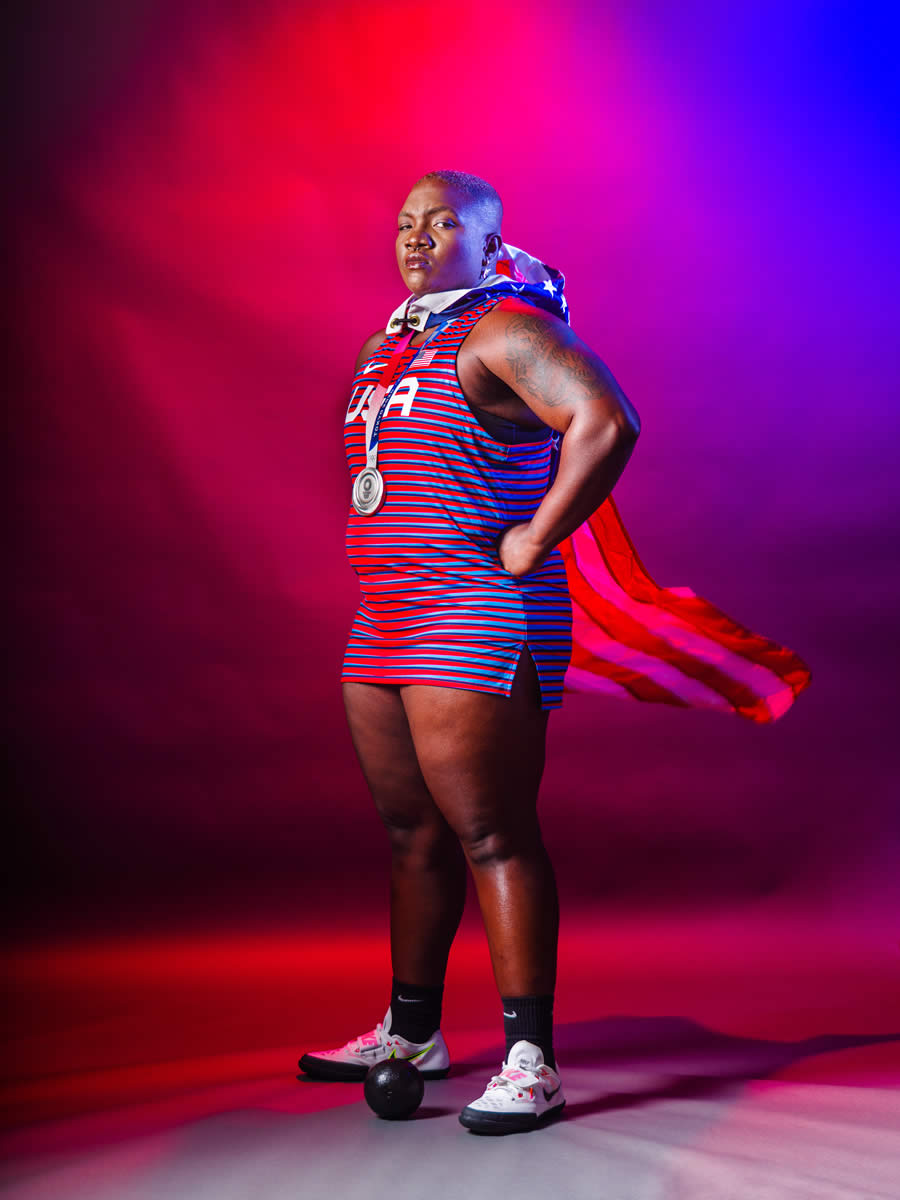
© Zaid Hamid Photography 2021 courtesy of Leidos
I immediately won my first meeting, but I didn't take myself too seriously.
Also because I never took myself too seriously.
I was a hyper active child, with my mother and grandmother always ready to try to recover me somewhere, or to calm me down.
The biological father was never part of the equation, but I had a nice extended family with many positive male figures, such as uncles and cousins.
I met them during the holidays, which maybe wasn't like having a dad around the house every day but, really, it wasn't bad.
I used to wonder who he was, where he was, and what his job was.
But the thought lasted for just a moment.
As it came, it went away quickly and I was back to being the usual tornado: super goofy and very good at making everyone laugh.
Sometimes on purpose, sometimes not.
However, even after winning the first competition, shot put remained a distant thought for me. As if it were just "another day at the office", and not a sincere passion.
It was strange, though, and it was beautifully strange, to finally feel good at something.
Seeing that, in something, I was better than everyone else.
Then the competitions got a little more serious and I learned that the shot put wasn't just a South Carolina thing, it was known outside of the State as well.
They even took me outside of the Nation, for my first indoor competition, but only when I got close to an American record, I realized that, perhaps, I had something important in my hands.
Something worth cultivating
When, just two days before Christmas, I realized that my coach kept calling me despite the holidays, I really understood that I should have taken it seriously.
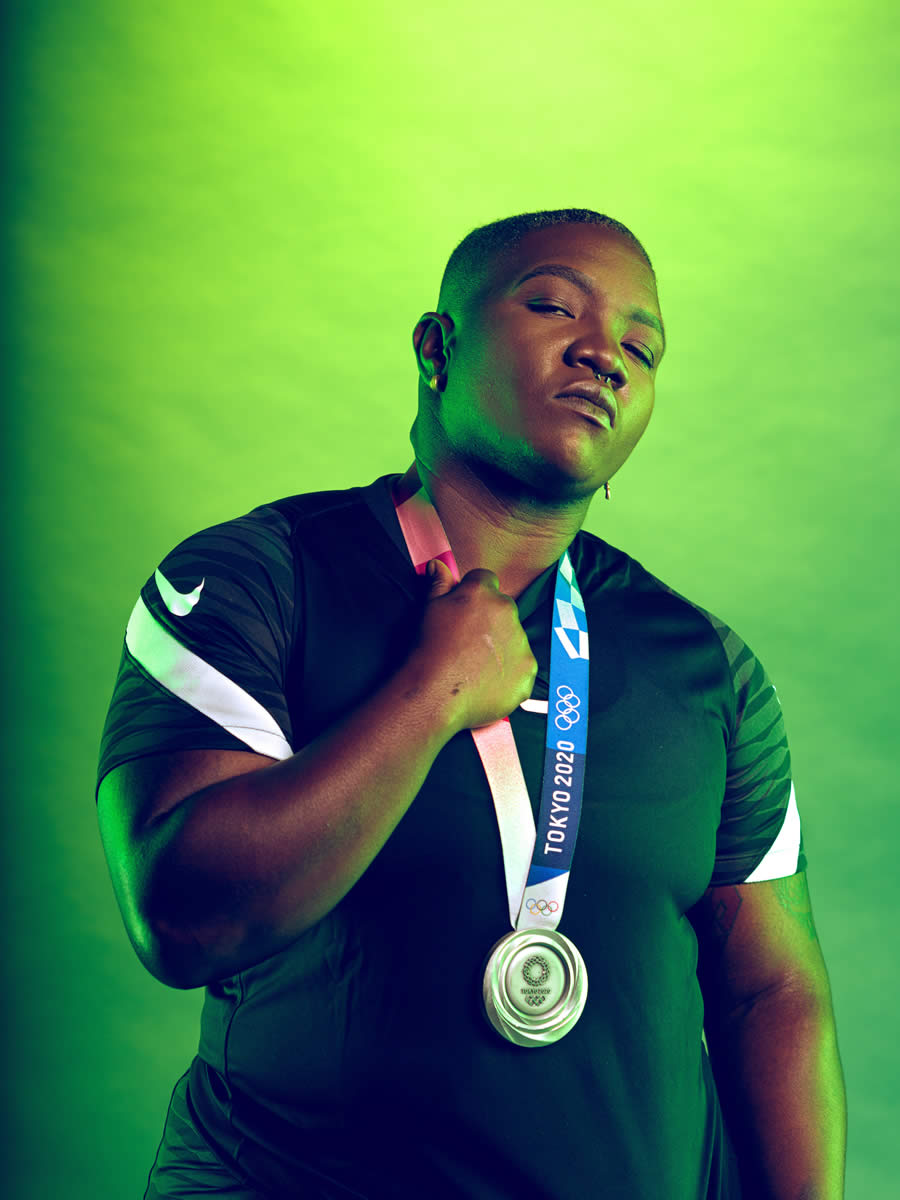
© Zaid Hamid Photography 2021 courtesy of Leidos
Since that time, shot put has become what I'm known for, what others see above everything else.
And this happens to all high-level athletes, who find themselves stuck in the same narrative that made them popular.
If you are a basketball player you are, first and foremost, if not only, a basketball player. It takes time, patience and many disappointments before being able to convey the concept that there is something else in you.
That there's something profound that defines you, and that won't stop doing it based on your sporting results.
I had confirmation of this in Tokyo, the second Olympics for me, during which I rediscovered all the purity of my childhood. I found all of Raven.
Rio's experience had been a kind of daydream, lived in the complete ignorance of the happy girl, the one unable to understand the moment because she was too busy loving whatever she sees.
In Japan it was very different.
Team USA was the youngest national team in decades, and the COVID context made the experience surreal. On one hand equal to itself, full of press and expectations, on the other completely unedited, sad, lonely.
Aseptic.
And I felt like everyone's mother.
I wanted the kids not to think too much about what they weren't going to experience.
I wanted them not to think about the silent Olympic Village.
I wanted them to have fun, to let go of all tensions and to enjoy being at the Games.
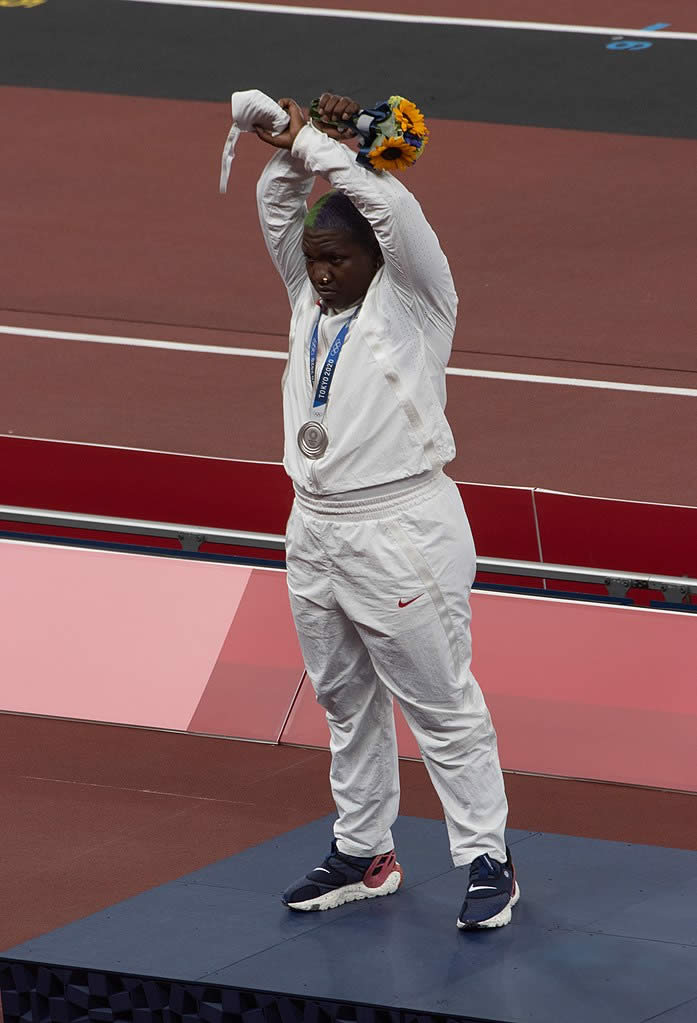
Even the gesture on the podium was part of what I felt, of what I wanted to share with the others.
The big X above my head represented the place where the paths of all those who suffer cross. Those who do not have a voice, and during the months of isolation have suffered more than others.
Because there are communities that have always, throughout history, suffered from crises much more than others. And that was my way of telling them something.
To tell us all, something.
When they let me know that the IOC was investigating and that maybe they would send someone to take my medal, I thought: "I really want to see who will have the courage to try to get it!".
It was a moment I couldn't have engineered better than this, because it allowed me to choose my words, not theirs, to say what I felt I needed to say.
At the Village, the reactions of the athletes, the hugs, the smiles and the thanks are among the things dearest to me ever, because with them I share the weight of a constant responsibility, of a profession that does not define me, but which the people see, before they see me.
And we must set an example, help share a culture of love and acceptance.
It's not always easy.
Now, for example, I'm waiting for the Olympic year to start without competing, because I missed 3 where-abouts, and I can't compete until 2024.
After Tokyo, I lived through some complicated months, with the passing of my mother, a major surgery, and doubts about the will to continue with the shot put.
I let myself go, and in the frenzy of the moment I forgot about my duties.
I was wrong.
We should be on top of it.
I'll put my pieces together and then I'll start my journey again, convinced, as always, that I can be the best shot putter ever.
Sometimes they ask me what's behind my wearing a mask, behind my colored hair, behind my exuberant personality when I compete.
And I always answer "nothing".
There’s just me.
That's my safe place, where I can really be who I am, and if anyone wants to find out more, please just ask.
Please ask, that's always worth it!

